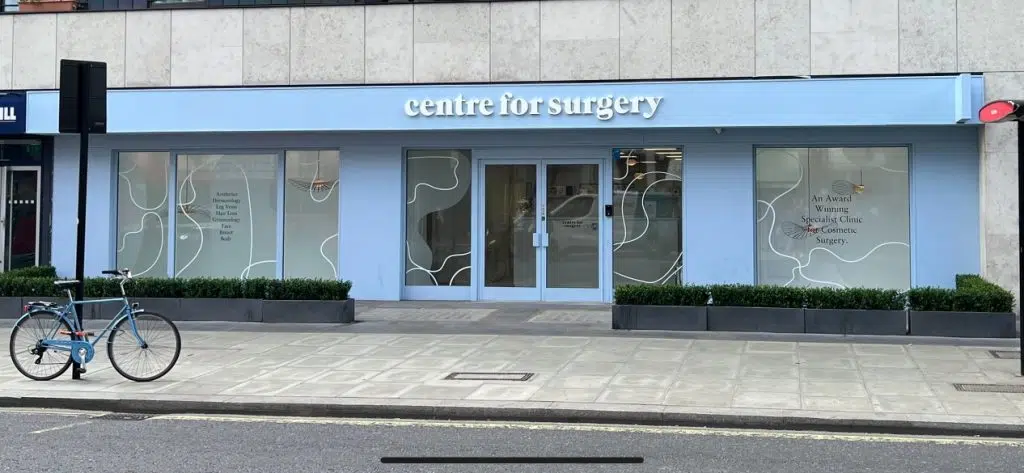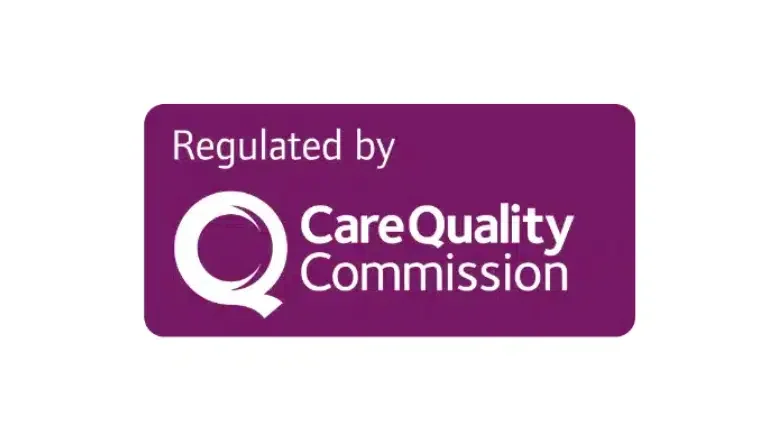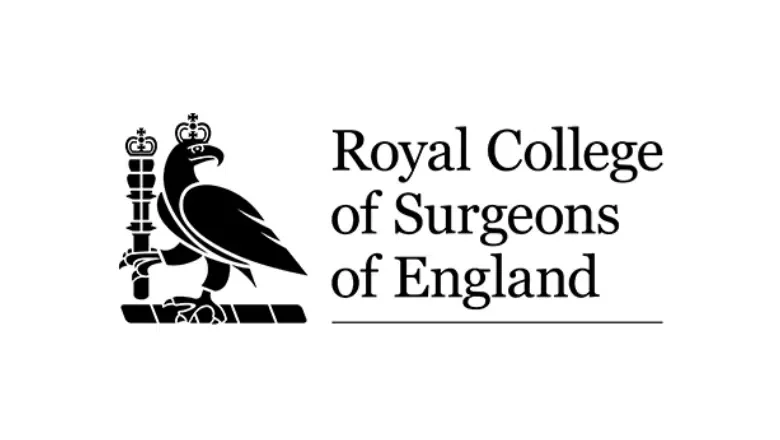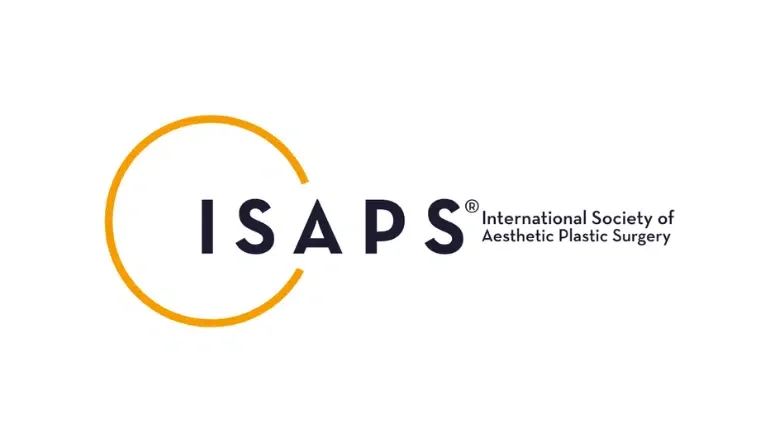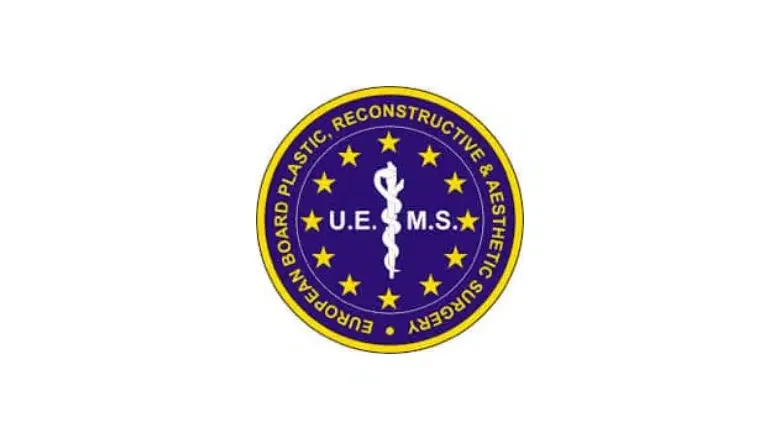Crucial Advice to Minimise Risks and Prevent Unsuccessful Cosmetic Surgery Outcomes
Nobody desires a cosmetic surgery mishap, especially when the goal is to enhance your aesthetics, not detract from them or give an artificial appearance. Regrettably, the proliferation of surgery results on social media, questionable advertising strategies, and even popular television series have exacerbated the confusion surrounding the qualifications and training of doctors who are competent to perform intricate cosmetic surgery procedures. Given that even a general practitioner (GP) in the UK can use the ‘cosmetic surgeon’ label, leaving many patients in the dark about what this implies, here are some essential recommendations to guide you in selecting a proficient surgeon. We will also discuss what factors you should consider before consenting to a cosmetic procedure and the potential hazards of seeking cosmetic treatments abroad.
- Botched Eyelid Surgery – How To Avoid Blepharoplasty Complications
- Can Botched Chin Liposuction be Corrected?
- How to Avoid Botched Breast Surgery
- How to Avoid Botched Gynecomastia Surgery
- Botched Liposuction – Can it Be Corrected?
- Botched Labiaplasty – Can it be Corrected?
Reflect on Your Motivations for Surgery and Consider Seeking a Second Opinion
Understanding your personal motivations for considering cosmetic surgery is paramount. It’s essential to ensure that you’re pursuing this path for yourself and no one else.
Your prospects for achieving satisfactory cosmetic surgery results increase significantly when you:
- Opt for the appropriate procedure for your unique situation and goals
- Seek surgery for the right reasons, primarily for your personal satisfaction
- Select a qualified, experienced surgeon you trust
- Choose a reputable and accredited facility for your operation
- Plan your surgery at a time in your life when you can afford to rest and recover without undue stress.
Educating yourself about the surgical process and recovery expectations is recommended, as experiences can vary widely among individuals.
By comprehending your motivations for undergoing cosmetic surgery, you can:
- Set realistic expectations for the outcome
- Commit to following critical post-operative instructions
- Better manage the surgical and recovery experience
- Understand that surgery is not a miracle solution and cannot replace healthy lifestyle habits
- Assess your readiness, both physically and emotionally, for the surgery
The mindset with which you approach the surgery and recovery process is crucial to a positive experience. It’s advisable to delay surgery if you’re dealing with significant emotional turmoil or mental health concerns. Always communicate any concerns about your emotional readiness for surgery to your surgeon.
Remember, there is a wealth of support available, including counsellors and support groups, that can provide guidance and reassurance during this journey.
Choose Nearby Accredited Healthcare Facilities in the UK
Healthcare providers in the UK adhere to stringent quality assurance standards, ensuring superior patient care. This includes:
- High standards of patient care
- Optimal nursing staff-to-patient ratios
- Effective pain management strategies
- Proper administration of medications, including antibiotics
- Robust infection control measures
- Rigorous sterilisation protocols
Identify Your Surgeon and Confirm Their Credentials
It is crucial to know who will be performing your surgery and to verify their specific medical training and surgical qualifications.
Do your research. If they are certified Specialist Plastic Surgeons, they should hold the FRCS (Plast) qualification and likely be a member of professional bodies such as BAPRAS, BAAPS, or ISAPS.
Such a qualified surgeon will also be called “Plastic Surgeon.” Cosmetic Surgeons, General Practitioners, Dentists, or Skin Doctors cannot legitimately use this title.
In contrast, a “Cosmetic Surgeon” may not have received accreditation from the Royal College of Surgeons and might only hold an MRCS qualification.
RELATED: Plastic Surgeon vs. Cosmetic Surgeon – Which Should I Choose?
Also, it’s important to note that Cosmetic Surgeons are not listed on the GMC specialist register. Always ensure the surgeon you choose is fully qualified and recognized by reputable professional bodies.
Choose Local Plastic Surgeons with Solid Reputations who Prioritise Your Safety
A surgeon’s reputation is on the line with each patient they treat. UK-based surgeons are likely to be more invested in your results compared to those located overseas.
Appreciate the benefits of choosing a locally based London Plastic Surgeon instead of a production-line style national Cosmetic Surgery group or overseas facility.
Opting for the best surgeons in your vicinity means your Plastic Surgeon:
- Understands the critical role of post-surgery after-care in ensuring a smooth recovery
- They are likely more accessible when you need them – including for recovery check-ups and annual reviews
- Operates from a long-established, well-known clinic
- Is invested in your long-term results and your satisfaction with the surgical outcome
- It avoids unproven methods and risky techniques that less trained doctors might be willing to try
- Contributes to the broader cosmetic surgery field by sharing their knowledge with peers and contributing to surgical research.
Understand the Risks Associated with Medical Tourism
The appeal of medical tourism, particularly for cosmetic surgery procedures, often lies in lower costs. However, it’s vital to understand that these procedures can sometimes result in compromised outcomes. These undesirable results may be due to inexperienced doctors or substandard conditions in overseas hospitals. In these situations, patients may have limited recourse if complications arise.
RELATED: The Dangers of Cosmetic Surgery Tourism
Key risks of medical tourism for cosmetic surgery include:
- Increased risk of infections: Overseas hospitals may not adhere to the same strict hygiene and infection control standards prevalent in UK hospitals.
- Medication inconsistencies: The types and quality of medication available overseas may vary, and this could impact your recovery.
- Bacteria: Exposure to foreign bacteria can lead to unexpected complications and infections.
- Premature travel post-surgery: Flying too soon after surgery can increase the risk of complications such as deep vein thrombosis (DVT) and pulmonary embolism.
- Lack of follow-up care: Post-operative care is crucial to a good recovery. Overseas procedures may not offer comprehensive follow-up care, leaving you without essential support if issues arise.
- Language barriers: Miscommunication due to language differences can lead to misunderstandings about the procedure, potential risks, and post-operative care.
- Questionable quality of implants: The quality and safety standards of breast implants and other prosthetics can vary significantly between countries.
RELATED: Why do people choose to have liposuction abroad?
The question to ponder is: If you wouldn’t trust the water quality in a particular overseas location, should you really be entrusting your surgical care to that same place? Carefully consider the potential risks and weigh them against the perceived benefits before making a decision.
Be Wary of Water Bacteria Risks When Having Surgery Abroad
Undergoing surgery in a foreign country can expose you to unfamiliar environmental conditions, including waterborne bacteria that your body isn’t accustomed to. This risk is particularly high in the postoperative period when your immune system may be compromised.
Key points to remember include:
- Post-surgery temptation: After surgery, you might be tempted to shower, bathe, or swim in local water sources. However, these waters could contain unfamiliar bacteria that could potentially infect your surgical wound or cause other illnesses.
- Oral hygiene: Even seemingly innocuous actions like brushing your teeth could introduce untreated water into your system.
- Bacteria-related illnesses: Exposure to unfamiliar waterborne bacteria could lead to gastrointestinal issues, such as vomiting and diarrhoea, or more serious infections, like staph infections.
- Quality of overseas medical care: The standard of medical care in overseas locations can vary widely and may not be up to the standards you’re used to.
- Lack of follow-up care: Overseas medical providers may not offer comprehensive post-operative care, leaving you without necessary support if complications arise. Importantly, there’s often little to no recourse available if your cosmetic surgery procedure doesn’t go as planned.
Avoid Flying Soon After Surgery
Air travel shortly after a surgical procedure can pose significant health risks.
Here are a few reasons why:
- Increased risk of complications: Departing from the region where you had surgery only a few days or weeks post-procedure can lead to an increased risk of complications. The changes in cabin pressure, the potential for dehydration, and the general stress of travel can negatively affect your recovery.
- Lack of post-operative care: If your surgeon isn’t local (for example, if you opt for a ‘fly-in/fly-out’ surgeon), they may not be able to provide you with the comprehensive post-operative care that is critical to a successful recovery.
- Access to recovery care: Surgeons in larger, well-established medical groups often have better infrastructure for patient aftercare, including follow-up appointments and ongoing support during recovery.
Your surgeon should provide you with specific guidelines about when it is safe to fly after your particular procedure. Generally, it’s best to avoid unnecessary air travel until you’re fully recovered.
Minimise Your Risk of Botched Surgery: Schedule a Consultation at Centre for Surgery
When considering cosmetic surgery, making informed decisions is key to ensure the best possible outcome. Centre for Surgery is committed to supporting patients on this journey by providing expert advice, transparent information, and exceptional care.
Our team of qualified and experienced surgeons at Centre for Surgery prides itself on a patient-focused approach, ensuring that each individual receives personalised care tailored to their unique needs and aspirations. We’re here to help you understand the process, set realistic expectations, and feel confident about your decision.
By choosing Centre for Surgery, you’re taking a significant step towards minimising the risks associated with cosmetic surgery. We are dedicated to maintaining the highest standards of practice, prioritising patient safety, and delivering outstanding results.
Don’t leave your appearance and health to chance. Schedule a consultation with one of our expert plastic surgeons at Centre for Surgery today, and embark on a safer, more confident journey towards achieving your cosmetic goals.
